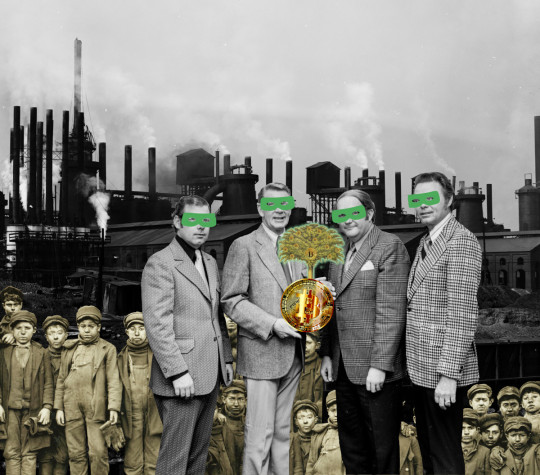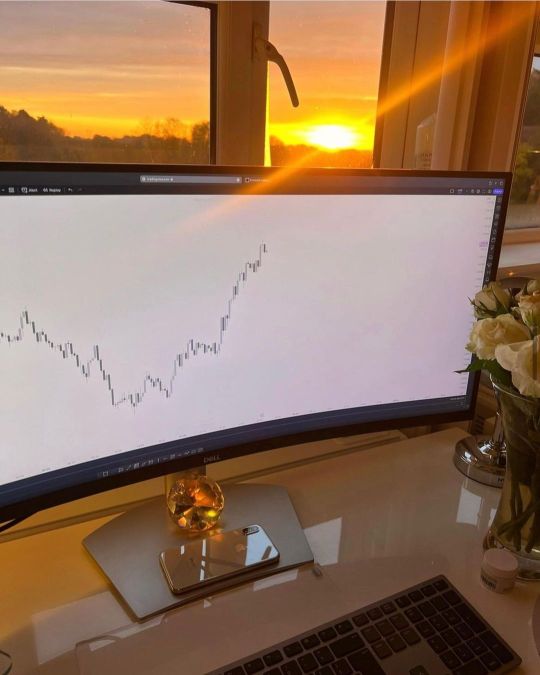#Cryptocurrency and Bitcoin
Explore tagged Tumblr posts
Text
Are Cryptocurrency And Bitcoin The Same Thing
Cryptocurrency
Crypto is a digital or virtual currency that uses cryptography for transactions. It’s on a decentralized network based on blockchain, with no central authorities like banks. Examples are Ethereum, Litecoin, USDT, etc.
Bitcoin
Bitcoin is the first and most popular crypto, created in 2009 by Satoshi Nakamoto, an anonymous person or entity. It’s a decentralized digital currency that enables peer-to-peer transactions without intermediaries and is considered the first blockchain. Read More

Bitcoin Was The First Cryptocurrency
Bitcoin, introduced in 2009, changed the finance and tech world by becoming the first crypto. Unlike traditional currencies controlled by governments and central banks, Bitcoin is on a decentralized network based on blockchain. Its creation marked the beginning of a new era in digital finance, with secure, transparent, and peer-to-peer transactions without intermediaries. As the first crypto, Bitcoin laid the foundation for an entire crypto ecosystem that’s still evolving. Understanding “Bitcoin as the first crypto” will give you an insight into its role in reshaping financial systems and its impact on the blockchain revolution. Whether you see it as digital gold, a medium of exchange, or an innovation, Bitcoin’s legacy is unmatched in the ever-growing world of cryptos.
Why Bitcoin Is Often Synonymous With Cryptocurrency
When folks think about cryptocurrency, Bitcoin pops into their heads first. But what makes Bitcoin so closely linked to cryptocurrency? Bitcoin kicked off the whole digital currency scene back in 2009, introducing the blockchain tech that’s now the backbone of all cryptocurrencies. Its groundbreaking take on decentralization and direct transactions between users sparked a financial shake-up. Over time, Bitcoin has grown to be the most well-known and used cryptocurrency, setting the bar for others in the field. Its top spot in market value, news coverage, and investor buzz further ties it to the term “cryptocurrency.” Bitcoin’s lasting impact on new ideas and sway makes sure it stays the face of digital money for loads of people. Getting why Bitcoin holds this position sheds light on its key role in molding the cryptocurrency scene.
youtube
Key Differences Between Cryptocurrencies and Bitcoin
People often use Bitcoin and cryptocurrency as if they mean the same thing, but they don’t. To get the big picture of digital assets, you need to know how cryptocurrency and Bitcoin differ. Bitcoin came out in 2009 as the first and most famous cryptocurrency. It works as digital money that uses blockchain tech. Cryptocurrency, though, covers all digital or virtual money built on networks without central control. Bitcoin is just one of thousands of cryptocurrencies out there, like Ethereum, Ripple, and Litecoin. Bitcoin aims to be a way to store value without anyone in charge. Other cryptocurrencies often do more, like run smart contracts or decentralized apps. When you look at how cryptocurrency and Bitcoin are different, you can see better how they fit into the changing digital money world.
Variety in cryptocurrencies
The range of cryptocurrencies shows how lively and groundbreaking digital finance has become. Bitcoin leads the pack, but others like Ethereum, Binance Coin, and Solana have found their spots. They offer special features, like running smart contracts and decentralized apps. Stablecoins such as USDT keep their price steady, which makes them great to use for payments. Coins that focus on privacy, like Monero, appeal to people who want to stay anonymous. This wide selection of cryptocurrencies lets users and investors find options that fit what they need. They can trade, invest, or get decentralized financial answers. As more types of cryptocurrencies pop up, everyone can find something that works for them in this changing crypto world.
Popularity And Growing Dominance of Bitcoin
The phrase ‘popularity and dominance of bitcoin’ refers to Bitcoin’s status as both the most popular subject and the most dominant coin of the entire crypto community, which can be said to be Bitcoin’s position within the market. It refers to how much Bitcoin is talked about and earned from as a currency, which is defined in the first question of one hundred dollars. It has defined how Bitcoin is perceived at the moment, which is categorized in the topic—Bitcoin and the popularity and dominance of Bitcoin: what is my view?
The First-Mover Advantage
The popularity and dominance of Bitcoin stem from the very first initial purchase of the product. Given that it is the first currency in existence, it makes it the first and most popular currency available. It has influenced people to delve into investing, which has led to the development of the affordability of thousands of other cryptos. Due to this situation, Bitcoin is the first and only cryptocurrency that applies to specific icons such as the bank, finance, etc.
Store of Value and Digital Gold
Just like gold, Bitcoin is also referred to as digital gold due to its limited quantity of 21 million coins. Lots of investors see it as a backup plan, making it a better option for those who are unsure, including people who are not living in the safest part of the world.
Institutional Adoption
The increasing interest from institutional investors and corporations has significantly contributed to Bitcoin’s dominance. Companies like Tesla and MicroStrategy have added Bitcoin to their balance sheets, while financial giants offer Bitcoin trading and custody services. This institutional backing has strengthened its credibility and expanded its use cases.
Network Effect and Brand Recognition
Bitcoin benefits from a strong network effect, with millions of users, miners, and developers contributing to its ecosystem. Its brand recognition as the first and most valuable cryptocurrency gives it unparalleled influence in both the crypto space and mainstream media.
Resilience and Market Share
Despite the emergence of thousands of altcoins, Bitcoin consistently maintains the largest market capitalization. Its resilience during market fluctuations and its role as the base trading pair for most cryptocurrencies underscore its dominance.
Bitcoin’s popularity and dominance remain unmatched, cementing its place as the cornerstone of the cryptocurrency revolution. Its pioneering technology, widespread adoption, and enduring trust continue to define the cryptocurrency market.
How Does Cryptocurrency Work?
Cryptocurrency has revolutionized the way we think about money by introducing a decentralized, digital alternative to traditional currencies. But how does cryptocurrency work? At its core, cryptocurrency operates on blockchain technology—a secure, transparent, and immutable ledger that records all transactions across a decentralized network.
Each transaction is verified by a network of computers, or nodes, through a process called cryptographic consensus. In cryptocurrencies like Bitcoin, this verification is achieved via mining, where miners solve complex mathematical problems to validate transactions and add them to the blockchain. On the other hand, cryptocurrencies like Ethereum utilize smart contracts, self-executing codes that enable automated processes without intermediaries. Read More
#crypto#cryptocurrency#cryptotrading#investing#bitcoin#blockchain#stock market#kucoin#invest in cryptocurrency#future of cryptocurrency#Cryptocurrency And Bitcoin#Youtube
1 note
·
View note
Text
Can we be done with cryptocurrency now? Please?
We've been on this train for a while now:
Investing in Cryptocurrency is Bad and Stupid
2K notes
·
View notes
Text
“Dead NFTs: The Evolving Landscape of the NFT Market” is a new report from dappGambl, a community of experts in finance and blockchain technology. Upon analysis of 73,257 NFT collections, the authors found that 69,795 have a market cap of zero Ether (ETH), the second most-popular cryptocurrency behind Bitcoin. In practical terms, that means 95 percent of NFTs wouldn’t fetch a penny today — a spectacular crash for assets that reached a trading volume of $17 billion amid a frenzied bull market in 2021. The study estimates that some 23 million investors own these tokens of no practical use or value.
[...]
The “Dead NFTs” report observes that the nearly 200,000 NFT collections “with no apparent owners or market share” identified by the study caused carbon emissions equivalent to the annual output from 2,048 houses, or 3,531 cars.
10K notes
·
View notes
Text
“Carbon neutral” Bitcoin operation founded by coal plant operator wasn’t actually carbon neutral

I'm at DEFCON! TODAY (Aug 9), I'm emceeing the EFF POKER TOURNAMENT (noon at the Horseshoe Poker Room), and appearing on the BRICKED AND ABANDONED panel (5PM, LVCC - L1 - HW1–11–01). TOMORROW (Aug 10), I'm giving a keynote called "DISENSHITTIFY OR DIE! How hackers can seize the means of computation and build a new, good internet that is hardened against our asshole bosses' insatiable horniness for enshittification" (noon, LVCC - L1 - HW1–11–01).

Water is wet, and a Bitcoin thing turned out to be a scam. Why am I writing about a Bitcoin scam? Two reasons:
I. It's also a climate scam; and
II. The journalists who uncovered it have a unique business-model.
Here's the scam. Terawulf is a publicly traded company that purports to do "green" Bitcoin mining. Now, cryptocurrency mining is one of the most gratuitously climate-wrecking activities we have. Mining Bitcoin is an environmental crime on par with opening a brunch place that only serves Spotted Owl omelets.
Despite Terawulf's claim to be carbon-neutral, it is not. It plugs into the NY power grid and sucks up farcical quantities of energy produced from fossil fuel sources. The company doesn't buy even buy carbon credits (carbon credits are a scam, but buying carbon credits would at least make its crimes nonfraudulent):
https://pluralistic.net/2023/10/31/carbon-upsets/#big-tradeoff
Terawulf is a scam from top to bottom. Its NY state permit application promises not to pursue cryptocurrency mining, a thing it was actively trumpeting its plan to do even as it filed that application.
The company has its roots in the very dirtiest kinds of Bitcoin mining. Its top execs (including CEO Paul Prager) were involved with Beowulf Energy LLC, a company that convinced struggling coal plant operators to keep operating in order to fuel Bitcoin mining rigs. There's evidence that top execs at Terawulf, the "carbon neutral" Bitcoin mining op, are also running Beowulf, the coal Bitcoin mining op.
This is a very profitable scam. Prager owns a "small village" in Maryland, with more that 20 structures, including a private gas station for his Ferrari collection (he also has a five bedroom place on Fifth Ave). More than a third of Terawulf's earnings were funneled to Beowulf. Terawulf also leases its facilities from a company that Prager owns 99.9% of, and Terawulf has *showered * that company in its stock.
So here we are, a typical Bitcoin story: scammers lying like hell, wrecking the planet, and getting indecently rich. The guy's even spending his money like an asshole. So far, so normal.
But what's interesting about this story is where it came from: Hunterbrook Media, an investigative news outlet that's funded by a short seller – an investment firm that makes bets that companies' share prices are likely to decline. They stand to make a ton of money if the journalists they hire find fraud in the companies they investigate:
https://hntrbrk.com/terawulf/
It's an amazing source of class disunity among the investment class:
https://pluralistic.net/2024/04/08/money-talks/#bullshit-walks
As the icing on the cake, Prager and Terawulf are pivoting to AI training. Because of course they are.

If you'd like an essay-formatted version of this post to read or share, here's a link to it on pluralistic.net, my surveillance-free, ad-free, tracker-free blog:
https://pluralistic.net/2024/08/09/terawulf/#hunterbrook
#pluralistic#greenwashing#hunterbrook#zero carbon bitcoin mining#bitcoin#btc#crypto#cryptocurrency#scams#climate#crypto mining#terawulf#hunterbrook media#paul prager#pivot to ai
388 notes
·
View notes
Text
The Role of Blockchain in Supply Chain Management: Enhancing Transparency and Efficiency

Blockchain technology, best known for powering cryptocurrencies like Bitcoin and Ethereum, is revolutionizing various industries with its ability to provide transparency, security, and efficiency. One of the most promising applications of blockchain is in supply chain management, where it offers solutions to longstanding challenges such as fraud, inefficiencies, and lack of visibility. This article explores how blockchain is transforming supply chains, its benefits, key use cases, and notable projects, including a mention of Sexy Meme Coin.
Understanding Blockchain Technology
Blockchain is a decentralized ledger technology that records transactions across a network of computers. Each transaction is added to a block, which is then linked to the previous block, forming a chain. This structure ensures that the data is secure, immutable, and transparent, as all participants in the network can view and verify the recorded transactions.
Key Benefits of Blockchain in Supply Chain Management
Transparency and Traceability: Blockchain provides a single, immutable record of all transactions, allowing all participants in the supply chain to have real-time visibility into the status and history of products. This transparency enhances trust and accountability among stakeholders.
Enhanced Security: The decentralized and cryptographic nature of blockchain makes it highly secure. Each transaction is encrypted and linked to the previous one, making it nearly impossible to alter or tamper with the data. This reduces the risk of fraud and counterfeiting in the supply chain.
Efficiency and Cost Savings: Blockchain can automate and streamline various supply chain processes through smart contracts, which are self-executing contracts with the terms of the agreement directly written into code. This automation reduces the need for intermediaries, minimizes paperwork, and speeds up transactions, leading to significant cost savings.
Improved Compliance: Blockchain's transparency and traceability make it easier to ensure compliance with regulatory requirements. Companies can provide verifiable records of their supply chain activities, demonstrating adherence to industry standards and regulations.
Key Use Cases of Blockchain in Supply Chain Management
Provenance Tracking: Blockchain can track the origin and journey of products from raw materials to finished goods. This is particularly valuable for industries like food and pharmaceuticals, where provenance tracking ensures the authenticity and safety of products. For example, consumers can scan a QR code on a product to access detailed information about its origin, journey, and handling.
Counterfeit Prevention: Blockchain's immutable records help prevent counterfeiting by providing a verifiable history of products. Luxury goods, electronics, and pharmaceuticals can be tracked on the blockchain to ensure they are genuine and have not been tampered with.
Supplier Verification: Companies can use blockchain to verify the credentials and performance of their suppliers. By maintaining a transparent and immutable record of supplier activities, businesses can ensure they are working with reputable and compliant partners.
Streamlined Payments and Contracts: Smart contracts on the blockchain can automate payments and contract executions, reducing delays and errors. For instance, payments can be automatically released when goods are delivered and verified, ensuring timely and accurate transactions.
Sustainability and Ethical Sourcing: Blockchain can help companies ensure their supply chains are sustainable and ethically sourced. By providing transparency into the sourcing and production processes, businesses can verify that their products meet environmental and social standards.
Notable Blockchain Supply Chain Projects
IBM Food Trust: IBM Food Trust uses blockchain to enhance transparency and traceability in the food supply chain. The platform allows participants to share and access information about the origin, processing, and distribution of food products, improving food safety and reducing waste.
VeChain: VeChain is a blockchain platform that focuses on supply chain logistics. It provides tools for tracking products and verifying their authenticity, helping businesses combat counterfeiting and improve operational efficiency.
TradeLens: TradeLens, developed by IBM and Maersk, is a blockchain-based platform for global trade. It digitizes the supply chain process, enabling real-time tracking of shipments and reducing the complexity of cross-border transactions.
Everledger: Everledger uses blockchain to track the provenance of high-value assets such as diamonds, wine, and art. By creating a digital record of an asset's history, Everledger helps prevent fraud and ensures the authenticity of products.
Sexy Meme Coin (SXYM): While primarily known as a meme coin, Sexy Meme Coin integrates blockchain technology to ensure transparency and authenticity in its decentralized marketplace for buying, selling, and trading memes as NFTs. Learn more about Sexy Meme Coin at Sexy Meme Coin.
Challenges of Implementing Blockchain in Supply Chains
Integration with Existing Systems: Integrating blockchain with legacy supply chain systems can be complex and costly. Companies need to ensure that blockchain solutions are compatible with their existing infrastructure.
Scalability: Blockchain networks can face scalability issues, especially when handling large volumes of transactions. Developing scalable blockchain solutions that can support global supply chains is crucial for widespread adoption.
Regulatory and Legal Considerations: Blockchain's decentralized nature poses challenges for regulatory compliance. Companies must navigate complex legal landscapes to ensure their blockchain implementations adhere to local and international regulations.
Data Privacy: While blockchain provides transparency, it also raises concerns about data privacy. Companies need to balance the benefits of transparency with the need to protect sensitive information.
The Future of Blockchain in Supply Chain Management
The future of blockchain in supply chain management looks promising, with continuous advancements in technology and increasing adoption across various industries. As blockchain solutions become more scalable and interoperable, their impact on supply chains will grow, enhancing transparency, efficiency, and security.
Collaboration between technology providers, industry stakeholders, and regulators will be crucial for overcoming challenges and realizing the full potential of blockchain in supply chain management. By leveraging blockchain, companies can build more resilient and trustworthy supply chains, ultimately delivering better products and services to consumers.
Conclusion
Blockchain technology is transforming supply chain management by providing unprecedented levels of transparency, security, and efficiency. From provenance tracking and counterfeit prevention to streamlined payments and ethical sourcing, blockchain offers innovative solutions to long-standing supply chain challenges. Notable projects like IBM Food Trust, VeChain, TradeLens, and Everledger are leading the way in this digital revolution, showcasing the diverse applications of blockchain in supply chains.
For those interested in exploring the playful and innovative side of blockchain, Sexy Meme Coin offers a unique and entertaining platform. Visit Sexy Meme Coin to learn more and join the community.
#crypto#blockchain#defi#digitalcurrency#ethereum#digitalassets#sexy meme coin#binance#cryptocurrencies#blockchaintechnology#bitcoin#etf
274 notes
·
View notes
Text
SCAM ALERT: Cryptocurrency related but can affect trans people buying HRT. I was probably 10 seconds away from having money stolen and I know what I'm doing. (Crypto Clipper)
Today I was helping a trans friend order some DIY HRT. A lot of DIY HRT places only accept cryptocurrency for security reasons. I am not looking to promote cryptocurrency or anything associated with it, but if you may be forced to use it for HRT or other reasons, you need to know this.
In general if you are forced to use crypto, you should use the cheapest coin your supplier will accept. If it is cheap, that means there is not a lot of activity on the chain and energy use will be less. I used one called Zcash as it was the cheapest one the site accepted but that's not really relevant.
I used an old coinbase account I had used for similar situations in the past. I was doing it on her PC. I got the instructions to pay on the HRT site, and I pasted the wallet address into Coinbase and just before I hit send I noticed the wallet address I had pasted didn't match the wallet address I had copied.
I looked it up and found this is from a form of malware called a Crypto Clipper, that detects when you have copied a crypto address, and makes you paste a different one so it can steal your money. I am lucky I noticed. To remedy it, I installed the free trial of Malwarebytes on her PC to remove malware, and completed the crypto transaction on my PC, and confirmed that the wallet address matched what the HRT site had given me.
I managed to avoid falling for it but it's such an easy thing to fall for, especially if you have avoided crypto thus far for extremely understandable reasons. Be careful out there! It could happen to anyone.
#trans#hrt#trans hrt#diy hrt#crypto#cryptocurrency#bitcoin#scam#scams#psa#important psa#important#virus#malware#cybersecurity
291 notes
·
View notes
Text

301 notes
·
View notes
Text
Today's Problematic Ship is the Satoshi

The Satoshi was a cruise ship owned by Ocean Builders, a company dedicated to "seasteading," an attempt to create a seabourne community free of laws imposed on dry land, with strong ties to the cryptocurrency movement.
The 1991-built ship, originally named Regal Princess but renamed Pacific Dawn in 2007, was purchased by Ocean Builders in the middle of the Covid-19 pandemic in 2020. The idea was to permanently anchor the ship in Panamian waters, as the central hub of an eventual community of "SeaPods", essentially individual houses at sea, which would be arranged around the Satoshi in the form of a Bitcoin B.
It quickly became evident that the people running Ocean Builders had no understanding of how to operate a ship: they initially failed to ensure their ship had certificate of seaworthiness to allow it to sail to Panama (where the venture was to be based), and even after this no-one was willing to insure the ship, making it impossible for passengers to live onboard. They also planned to re-engine the ship while it was out at sea, a physically impossible task to accomplish without sinking the ship in the process.
The leadership of Ocean Builders blamed all this on shipping being "plagued by over-regulation." (Many of our entries here at Today's Problematic Ship demonstrate those regulations exist for a reason). The end result was predictable: by the time the Satoshi arrived in Panama it had been sold to an Indian shipbreaker.
Except Ocean Builders had signed a contract they could not honour: according to the Basel Convention, which covers the disposal of hazardous waste, they weren’t allowed to send the ship from a signatory country (Panama) to a non-signatory country (India). Thus the sale was cancelled, and subsequently the ship was arrested by Panamian authorities.
Eventually, the Satoshi was sold in 2021 a different startup company, Ambassador Cruise Line. The new venture, who actually knew how to operate a cruise ship, started successful operations with the former Satoshi, now renamed Ambience, in 2022.
The Guardian has a detailed article about the saga of the Satoshi and the seasteading movement.
1K notes
·
View notes
Text
aabon35

#Check out my drop on#@opensea#https://opensea.io/collection/mars-223/overview#Mars#aabon35.blogspot.com ⚫️#nft#opensea#digitalartist#anime#arte#art#newartist#artforsale#latestart#nftart#nftcommunity#nfts#nftcollectors#nftcollectibles#ethereum#bitcoins#cryptocurrency#cryptoart#rarible#ai#aiart#aiartcommunity#aiartwork#aiartist
39 notes
·
View notes
Text

62 notes
·
View notes
Text
Hey everyine great news! My drop shiopping courses have been enough of a scusess tbat the
33 slurp juices remain. Your mission is to eliminate all of them before they can combine with an astro ape and mint a new astro ape
NFT game is back on! And there’s even better news!!!
Just ship a dead rat to 38.89679° N, 77.03601° W for a big surprise!!! Send me a pic of the surprise and you’ll even get a jared leto joker nft valued at 10 million billion dogecoin on us!!!
But hurry! This once in a lifetime opportunity is going away flr goot in just [function.timne+1]!!! Be sure to get in on the ground floor because forget the moon, we’re going all the way to freaking mars!!!
Did YOU seee the hiddem nessage??? Be sure to read the post thoroughly for any clues you might have missed!!!
#to the moon#nft#bitcoin#blockchain#crypto#cryptocurrency#web 3.0#binance#cryptocurreny trading#investment advice#retirement planning#stocks#stock market#cryptocurrency trading#cryptocurrency investment#might blaze this later idk
126 notes
·
View notes
Text
Investing in Cryptocurrency is Bad and Stupid
If you’ve been reading our blog for long, you probably could’ve guessed we think investing in cryptocurrency is bad and stupid.
And yeah, I considered using more expansive words like “unethical” and “speculative” instead of “bad and stupid.” Those words had precision, but lacked panache.
Our Patreon donors vote on potential article topics, and this month they wanted to read our thoughts on investing in cryptocurrency. So we get questions about it all the time! Which isn’t surprising. Relative to cash and traditional investment vehicles, crypto is new and confusing. To make matters worse, there’s so much hype surrounding it in the personal finance world that research feels like reading a data science textbook through a swarm of bees.
Mercifully, we’re not here to explain what crypto is, or how the mysterious blockchain technology works (others have done that intolerably boring work for us). Rather, we’re going to release you from caring about crypto in the first place!
So it’s our personal opinion that investing in cryptocurrency is bad and stupid, and you shouldn’t do it. Here’s why.
Keep reading.
Did we just help you out? Say thanks on Patreon!
42 notes
·
View notes
Text
In 2020 to 2021, Bitcoin consumed 173.42 terawatt hours of electricity - enough to rank it 27th among nations, trumping the likes of Pakistan with a population of over 230 million people. The resulting carbon footprint was the equivalent of burning 84 billion pounds of coal. To offset this, a study by the United Nations University found 3.9 billion trees would have to be planted, covering an area almost equal to the Netherlands, Switzerland, or Denmark.
Globally, bitcoin mining used 1.65 million liters (about 426,000 gallons) of water in 2020-2021, enough to fill more than 660,000 Olympic-sized swimming pools. China, the U.S. and Canada had the largest water footprints. Kazakhstan and Iran, which along with the U.S. and China have suffered from water shortages, were also in the top-10 list for water footprint. “These are very, very worrying numbers,” Madani said. “Even hydropower, which some countries consider a clean source of renewable energy, has a huge footprint.”
194 notes
·
View notes
Text

USA could do the funniest thing today...
13 notes
·
View notes
Text



Time to take this office apart ft my needy little helper I won't miss much about this office, but I will definitely miss the stunning view and the breathtaking sunrises I had every morning. I haven't decided whereabouts my office will be going in my new house yet but I'm looking forward to switching things up and creating my brand new trading den ⚫.
#forexmarket#forextrading#forexstrategy#forex#bitcoin#free usdt#cryptocurrency#cryptonews#crypto#stock market#stock trading#investment#learnsomethingneweveryday#learn forex trading
35 notes
·
View notes